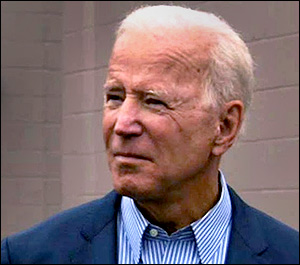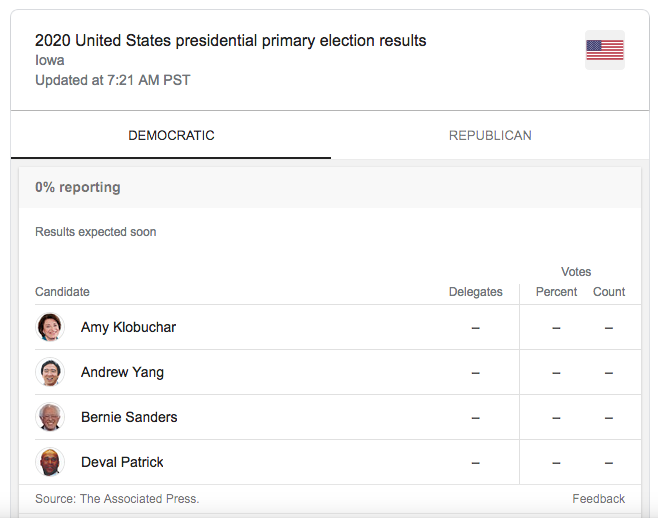 By Jim Ellis
By Jim Ellis
Feb. 11, 2020 — At long last, the New Hampshire nomination election has arrived, and voters have already begun casting their ballots in what is often referred to as the “first in the nation primary.” The initial state in a line of 48 primaries (the other nine states and territories have caucuses), just how important is today’s vote in determining who wins the 2020 Democratic presidential nomination?
Considering the split Iowa vote where it appears that five different candidates will be awarded a certain number of first-ballot national convention delegate votes ranging from 14 to one, New Hampshire’s 24 aggregate delegates will not likely alter the current race trajectory; therefore, multiple candidates will still be battling through Nevada and South Carolina before Super Tuesday with no one having a clear early path to majority support.
First-ballot victory at the Democratic National Convention in July can only come when one candidate top 50 percent of delegate support. Therefore, regardless of the importance media analysts attempt to assign this New Hampshire race in terms of a momentum boost, it is the delegate numbers that will still tell the story.
Coming from Iowa, former South Bend mayor, Pete Buttigieg, looks to earn 14 delegates with Sen. Bernie Sanders (I-VT) close behind with 12. Now, Sen. Sanders’ team is requesting a partial recount in Iowa that might earn him an extra delegate or two, but it is doubtful the Iowa Democratic Party, with a party leadership still reeling over the vote counting debacle, will grant their request.
Continuing the projected delegate apportionment, Sen. Elizabeth Warren (D-MA) would earn eight bound delegate votes, former vice president, Joe Biden six, and Minnesota Sen. Amy Klobuchar, one.
Polling suggests that Sen. Sanders will place first tonight, but several candidates look to break the 15 percent threshold to also qualify for bound delegate votes. Polling finds scenarios where Buttigieg, Warren, Biden, and even Klobuchar will surpass the minimum threshold, though it is unlikely that all will do so. In fact, with Biden’s early support evaporating before our eyes, it is possible that he will fall short of 15 percent tonight meaning that he would be shut out of delegate votes. Though Sen. Klobuchar appears to be closing fast, it is also likely that she finishes under 15 percent.




 Feb. 3, 2020 — The final Iowa Caucus research surveys are providing very different results, while what is traditionally the state’s most reliable poll, from the Des Moines Register through Selzer & Company, is being held back.
Feb. 3, 2020 — The final Iowa Caucus research surveys are providing very different results, while what is traditionally the state’s most reliable poll, from the Des Moines Register through Selzer & Company, is being held back.